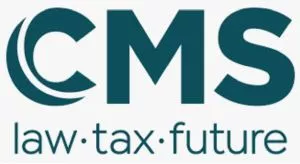On 10 June 2022, a package of five laws were published to implement the European Union ("EU") directives which are part of the "Circular Economy" into Luxembourg law and to strengthen the Luxembourg legal framework for waste management. Amongst them, three laws are of special interest.
1. Management of waste
The law of 9 June 2022 (the "Waste Law") implements directive 2018/851 of the European Parliament and of the Council of 30 May 2018 amending Directive 2008/98/EC on waste (the "2018/851 Directive"). The 2018/851 Directive is part of a circular economy package and provides measures to (i) prevent or reduce the generation of waste, (ii) reduce overall impacts of resource use, and (iii) set out extended producer responsibility schemes.
The Waste Law sets out three main measures to protect the environment and human health by preventing or reducing waste generation and the harmful effects of waste generation and management, and by reducing the overall impact of resource use and improving resource efficiency, which are essential for the transition to a circular economy and long-term competitiveness.
Concerning the prevention of generation of waste, the Waste Law provides for measures to prevent the production of certain types of waste. Thus, certain single-use objects or cosmetic products containing microplastics will gradually be banned from the market, with certain exceptions. Similarly, from 1 January 2024, commercial advertising material will only be distributed in post boxes to recipients who have formally agreed thereto. As from 1 January 2025, cutlery, plates, etc. which are used in food delivery/takeout services should be reusable and recovered.
Furthermore, as part of the fight against food waste, supermarkets of a certain size will have to draw up, implement and keep up to date a food waste prevention plan. Furthermore, restaurant owners will have to hand over leftover food to be taken away at the customer's request.
Regarding waste recovery, the Waste Law also aims at promoting the reuse, recycling and recovery of waste. For instance, it will be compulsory for certain large retail trade establishments to set up separate collection facilities for packaging waste after checkout. In addition, municipalities will be subject to new targets for preparing municipal waste for reuse and recycling, and recycling centres will be transformed into resource centres, accessible to all residents of the Grand Duchy of Luxembourg.
In addition, new provisions concern the management of construction waste. In certain cases, an inventory identifying the different materials used in the work to be deconstructed will have to be established and an IT register of the different materials used in certain new constructions will have to be established by the project owner ("maître d'ouvrage"). The project owner will also be required to set up a separate collection of the different fractions of waste from construction and deconstruction sites.
Finally, the Waste Law strengthens the extended producer responsibility. Under this regime, producers of products take financial and/or organisational responsibility for the prevention, reuse, and management of the waste phase of a product's life cycle.
However, when a producer of products does not assume its responsibilities in this context, the distributor, which places products subject to this regime on the Luxembourg market, even in the framework of e-commerce, has to assume them. Producers of products may delegate their responsibilities to a certified organisation ("organisme agréé").
2. Packaging and packaging waste
The law of 9 June 2022 (the "PPW Law") implements directive 2018/852 of the European Parliament and of the Council of 30 May 2018 amending Directive 94/62/EC on packaging and packaging waste (the "2018/852 Directive"). The 2018/852 Directive was adopted with the objective of further limiting the production of packaging waste and promote the reuse and recycling of packaging waste in order to contribute to a circular economy.
Concerning packaging reduction, the PPW Law provides for a limitation of the level of annual consumption of lightweight plastic bags. Furthermore, as from 1 January 2025, certain single-use products such as beverage cups and food containers as well as plastic bags may no longer be provided free of charge at the point of sale, regardless of their size, consumption pattern or material. At the same time, the price of the packaging must be displayed at the point of sale and the consumer who waives the packaging may receive a discount equal to the cost of the packaging.
Regarding recovery and recycling, packaging managers are set targets for waste recovery and recycling, depending on the nature of the waste. They are also required to ensure (i) the take-back or collection of used packaging or packaging waste from the consumer, any other end-user or the waste stream, with a view to directing it to the most appropriate waste management solutions, (ii) the re-use of the packaging and (iii) its preparation for re-use or recovery.
In addition, beverage packaging serving human consumption and placed on the Luxembourg market is subject to a single national deposit system, the date and modalities of implementation of which will be defined by Grand-Ducal regulation.
Furthermore, in order to facilitate collection, re-use, preparation for re-use and recovery, including recycling, packaging shall indicate the nature of the packaging materials used, in a clearly visible and easily legible manner, even after the packaging has been opened.
Finally, the PPW Law states that the packaging manager is subject to the extended producer responsibility regime of the law of 21 March 2012. In addition, each packaging manager who has placed lightweight plastic bags on the market must declare the annual quantity of these bags to the certified organisation ("organisme agréé") which they have joined.
3. Single-use plastic
The law of 9 June 2022 (the "Single-Use Plastic Law") implements directive 2019/904 of the European Parliament and of the Council of 5 June 2019 on the reduction of the impact of certain plastic products on the environment (the "2019 Directive") into Luxembourg law. The 2019 Directive was adopted as part of the European Strategy for Plastics which aims to establish a circular economy in which repair, re-use and recycling is promoted along with the development of more sustainable materials.
The Single-Use Plastic Law focuses on products which are intended to be used just once or for a short period of time before being disposed of in an effort to fight marine litter and its known consequences on the environment.
Concerning consumption reduction, product producers take measures in order to reduce the amount of single-use plastic products consumed by 2026 compared to 2022. Products targeted comprise cups for beverages including their covers and lids and certain food containers. This reduction should be of at least 20% for the relevant period, compared to the units placed on the market. As from 1st January 2026, a further reduction of 10% compared to the previous year should be achieved.
Regarding restrictions on placing on the market, the placing on the market of certain products for which low-cost alternatives already exist, as well as products made from oxo-degradable plastic is prohibited. Products targeted by this prohibition are notably cutlery, plates, straws, beverage stirrers, etc. Furthermore, any retail business displaying fresh fruit and vegetables for sale must display them without packaging consisting wholly or partly of plastic material unless they are packaged in batches of 1.5 kilograms or more.
The Single-Use Plastic Law also provides that single-use plastic products such as beverage containers with a capacity of up to three litres and which have plastic caps and lids may only be placed on the market if their caps and lids remain attached to the container during their use.
Furthermore, beverage bottles with a capacity of up to three litres which are manufactured from polyethylene terephthalate as the major component shall, as from 2025, contain at least 25% of recycled plastic and as from 2030, 30% of recycled plastic.
Furthermore, single-use products such as tampons, wet wipes, etc. must contain a marking on their packaging or the product itself informing consumers on i.a. the appropriate waste management options and the presence of plastics.
Finally, extended producer responsibility is applicable, in line with the provisions of the law of 21 March 2012, for all single-use plastic products listed under Appendix E (e.g. food containers, beverage containers up to a capacity of three litres, beverage cups) and for fishing gear containing plastic. The Single-Use Plastic Law requires producers to cover the costs of awareness-measures, of cleaning, transport and handling of litter, of collecting the waste from these products that is handed over to public collection systems, including the costs of the infrastructure and its operation, as well as the transport and subsequent treatment of such waste.
The Single-Use Plastic Law shall progressively enter into application until 31 December 2024.
The content of this article is intended to provide a general guide to the subject matter. Specialist advice should be sought about your specific circumstances.




